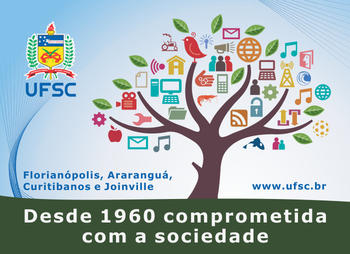Bolsa PDJ – CNPq
Laboratório de Etologia Aplicada e Bem-Estar Animal
Universidade Federal de Santa Catarina
Supervisora: Professora Maria José Hötzel (Currículo Lattes)
Projeto de pesquisa: Bem-Estar Animal – Um Componente Necessário para a Sustentabilidade da Indústria Leiteira Brasileira
Financiamento via CHAMADA DE PROJETOS MEC/MCTI/CAPES/CNPq/FAPs Nº 71/2013, Linha 2, Área: Produção Animal Sustentável
Data de início negociável, a mais tardar novembro de 2014.
Duração: 1 ano, renovável.
Para candidatar-se entrar em contato com Maria José Hötzel através do email mjhotzel@gmail.com. No assunto identificar-se “Bolsa PDJ, CHAMADA DE PROJETOS MEC/MCTI/CAPES/CNPq/FAPs Nº 71/2013”. Descrever como se enquadra nas qualidade essenciais e desejadas abaixo.
Qualidades essenciais do candidato
– O candidato pode ter concluído qualquer curso de graduação ou pós-graduação, desde que satisfaça os critérios mínimos abaixo:
– Interesse nos temas gerais e específicos do projeto
– Familiaridade com algum aspecto essencial à condução dos experimentos, como avaliação do comportamento animal ou experiência em clínica de grandes animais (se outro, especificar)
– Motivação e independência para aprofundar-se nos aspectos teóricos e práticos específicos do projeto
– Motivação para interagir com estudantes de graduação e pós-graduação, para assumir papeis de co-liderança e co-supervisão
– Capacidade demonstrada de elaborar um artigo científico como autor principal
– Compreensão e domínio de ferramentas básicas de estatística
– Habilitação para conduzir automóvel (em estradas e em localidades rurais)
– Disponibilidade para afastar-se da sede em Florianópolis durante os períodos necessários para a coleta de dados a campo e visita técnica ao laboratório parceiro na University of British Columbia, Canadá.
– Demonstrar domínio fluente do idioma inglês para leitura e compreensão, além de alguma capacidade de comunicação oral e de redação (componente essencial para interagir com a equipe colaboradora do Canadá)
Qualidades desejadas do candidato
– Experiência de campo para realizar pesquisa junto a produtores leiteiros
– Formação em etologia ou bem-estar animal durante graduação ou pós-graduação
Oportunidades
– O projeto prevê visita técnica do pós doutor ao Laboratório parceiro na UBC, Canadá.
Detalhes do Projeto de Pesquisa
CHAMADA DE PROJETOS MEC/MCTI/CAPES/CNPq/FAPs Nº 71/2013
Linha 2
Area: Sustainable Agricultural Production
Project Title:
Animal Welfare – A Necessary Component for the Sustainability of the Brazilian Dairy Industry
Bem-Estar Animal – Um Componente Necessário para a Sustentabilidade da Indústria Leiteira Brasileira
Applicants:
Project Coordinator: Prof. Dr. Maria José Hötzel
Host Institution: Universidade Federal de Santa Catarina – UFSC, Florianópolis, Brazil
Grupo de Pesquisa: LETA- Laboratório de Etologia Aplicada e Bem-Estar Animal
Visiting Professor: Prof. Dr. Marina A.G. von Keyserlingk
Collaborator at UBC: Prof. Dr. Daniel M. Weary
Institution: University of British Columbia, Vancouver Canada
Other collaborators: Prof. Dr. Luiz Carlos Pinheiro Machado Filho, LETA/UFSC
SUMMARY
Animal welfare has emerged as one of the key public concerns regarding animal agriculture and clearly affects the sustainability of food animal production systems. There is a growing global concern that the public perception and acceptability of farm animal welfare issues will have a profound influence on specific husbandry practices and housing conditions that will be allowed to be used now and in the future. Scientists working at the University of British Columbia are leading experts on how dairy cattle housing relates to health issues such risk of lameness. Moreover, benchmarking has been shown to be a powerful method for promoting the adoption of best practices that result in improved dairy cattle welfare. This process involves providing individual farms with data from their own farm and averages from other farms in their region, in essence benchmarking their own performance. There is dearth of information available describing the prevalence of lameness and injuries in the Brazilian dairy industry, and how these relate to housing and management practices for intensive and pasture-based systems in Brazil. Thus the first objective of this proposal is to benchmark farm design and management features and health, specifically lameness, for dairy systems in three dairy regions within Brazil. The second objective will be to describe the statistical relationships between farm design features and management and the risk of lameness on the farms visited within each region. The findings arising from the proposed work addressing these two objectives could have a profound impact on the economic and practical success of dairy producers located in the different regions in Brazil through improved dairy cattle welfare. Reduced lameness and improved cow welfare would be achieved through identification of bedding substrates, housing and other environmental features including pasture, and cow behavioral patterns associated with reduced incidence of lameness and injuries. This information will be crucial for producers to understand how they can maximize milk production on their farms while operating under the constraints they may be faced with.
The implementation of this program will result in the training of one post-doctoral fellow, one Ph.D. student, two Masters students, and 5 undergraduate students. Results will be communicated in conferences, international peer reviewed scientific journals and field days and seminars. The findings arising from Objectives 1 and 2 could have a profound impact on the economic and practical success of dairy producers in Brazil through improved dairy cattle welfare, thus contributing to the sustainability of the local dairy industry.






